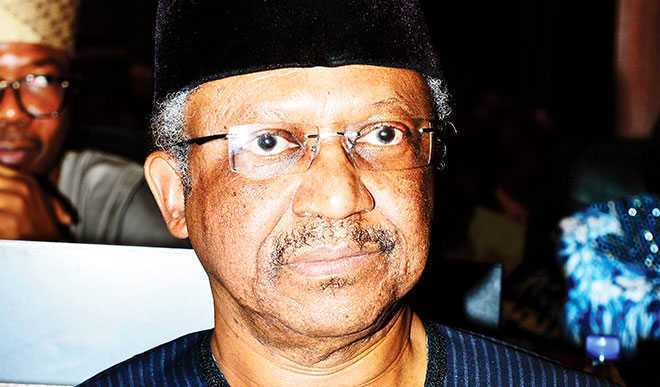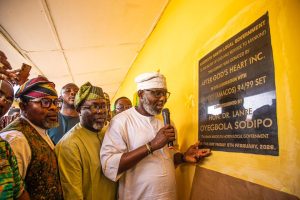
By JOHN NWOKOCHA, Abuja
Minister of Health Dr. Osagie Ehanire, lamented Tuesday that only about 43 per cent of Nigerians have access to quality primary healthcare services, stating that the high disease burden and frequent outbreaks in the country is due to weak primary healthcare system.
The lack of access to healthcare, according to the minister, “is responsible for needlessly high maternal and child mortality, debility, absenteeism from work and much suffering.” Ehanire therefore called on stakeholders to support the federal government in its efforts towards rural health delivery. Those expected to join hand with the government include; leaders at national and sub-national levels and leading private sector players. The body will present ambitious and attainable plans to reengineer the country’s PHC system by 2030. The Federal Ministry of Health, in collaboration with the NPHCDA, will be holding a Primary Health Care Summit on March 24 and 25 in Abuja, to address the needful in respect of rural health delivery. Also, the summit would be solutions-focused for improved PHC services nationwide.
“Primary healthcare is the foundation of the entire health system. Its strength is crucial to the functioning of all other levels. To meaningfully improve quality and accessibility of healthcare in Nigeria as a whole, we must urgently and comprehensively reform our primary care system,” the minister said.
The minister added that 70 per cent of disease burden could be prevented and managed at primary health care.
He spoke on Tuesday in Abuja, at a Primary Health Care Summit, saying that a functional PHC system, with strong programmes for health education and disease prevention, could take care of 70 per cent of Nigeria’s disease burden for improved productivity and Gross Domestic Product (GDP).
The theme of the summit is PHC re-imagining: evolving a resilient platform for achieving our national and global health goals via a peri-covid era.
According to him, already, the Federal government had developed a 10-year strategy to re-imagine PHC with a four-point agenda for PHC revitalisation for achievement of universal health coverage (UHC) and Sustainable Development Goals (SDGs).
Also speaking Executive Director (ED)/Chief Executive Officer (CEO), NPHCDA, Dr. Faisal Shuaib, said, “Today, only approximately 43 per cent of Nigerians have access to quality primary healthcare services with only about four doctors available per 10,000 people, a fraction of the minimum rate recommended by the United Nations (UN) for basic health coverage. It is widely recognised that 70 per cent of disease burden can be prevented and managed at the PHC (Primary Health Care) level.”
Continuing, Shuaib said the summit would transform the under-resourced and weak primary healthcare system in Nigeria by leveraging private sector, international agencies and government collaborations.
He stated that the submmit’s theme which was appropriately chosen would bring together national leaders, top government officials and leading private sector players to present ambitious and attainable plans to reengineer the country’s PHC system by 2030.
According to him,“Reimagining PHC,” summit is solutions-focused for improved PHC services nationwide.
Shuaib noted, “The COVID-19 pandemic has cast a sharp light on the global inequalities in health and access to care, and the health care system in Nigeria needs transformation, and PHC is the backbone.”
Shuaib noted: “This launch is a call to join in the ambitious action to transform health in Nigeria for our and future generations. A fit-for-purpose PHC system is foundational to delivering universal health coverage, national health security and achieving the Sustainable Development Goals (SDGs) in Nigeria.”



